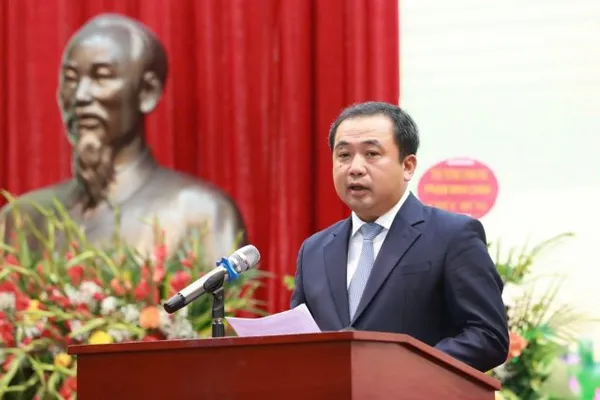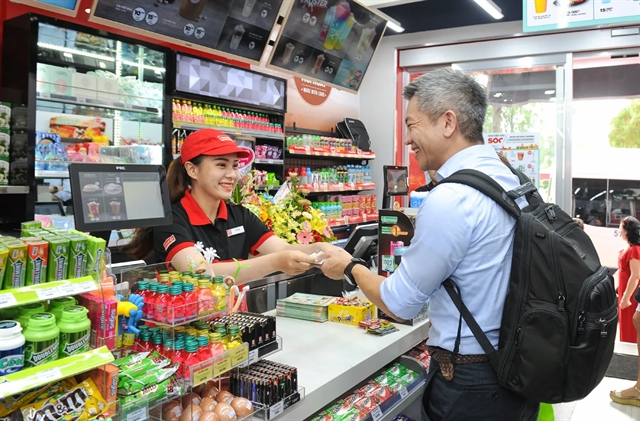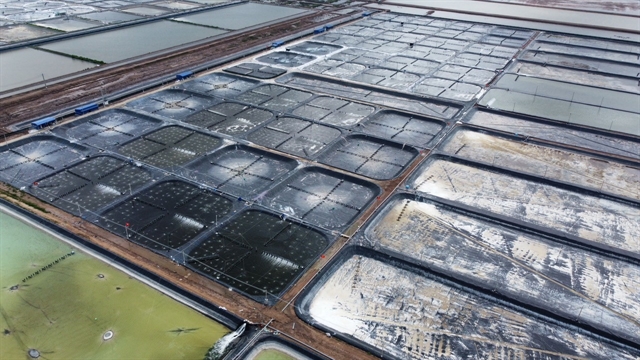 Expat Corner
Expat Corner
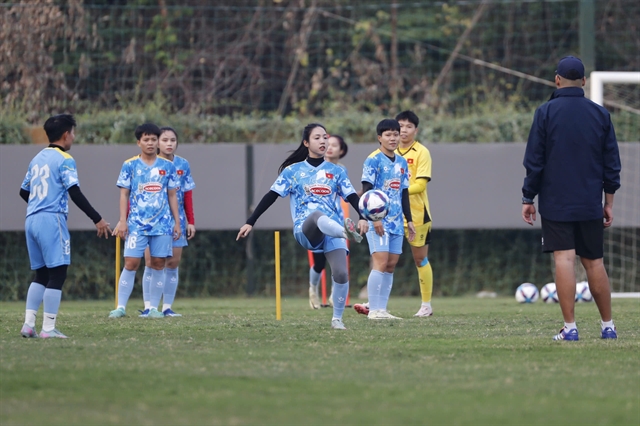
On the occasion of 196 years of the Independence Day of Uruguay, Appointed Ambassador of Uruguay to Việt Nam Raúl Pollak Giampietro writes to Việt Nam News.
On the occasion of 196 years of the Independence Day of Uruguay, Appointed Ambassador of Uruguay to Việt Nam Raúl Pollak Giampietro writes to Việt Nam News.
On 25 August, 1825, Uruguay started its independent life.
Thus ended a long period of wars that forged the independence of the country, started fifteen years before against the foreign powers that ruled the territory, then known as Provincia Oriental or Cisplatina.
Inhabited from the outset by European migrants, the small and young country soon acquired, in a way, kind of a sophisticated air from the Old World, that still remains in the architecture of the cities, and the style and the way of life of the people.
Spaniards, Portuguese and British, who participated in the several processes of domination, then settled in different parts of the country, influencing the ideas of the politicians, and helping to establish the pillars of the rising nation.
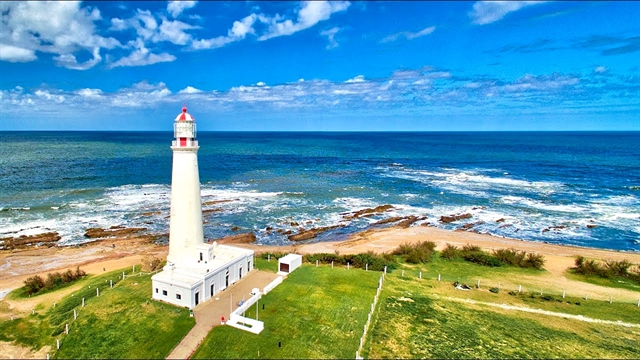
|
| Cabo de Santa María Lighthouse, La Paloma, Rocha, Uruguay. — Photos courtesy of the embassy |
The migration flows increased in the 20th Century, as a result of the ravages brought about in Europe by the two World Wars.
Uruguay opened to the migrants, and soon became a melting pot where French, Polish, Germans, Russians, Italians, Swiss, Hungarians and Romanians joined the already settled Europeans, boosting the economy, and fostering the culture, which helped the country to grow fast.
Since then, for almost 200 years, Uruguay has been known as a small beacon of democracy, freedom, equality and justice at the South Cone of America.
Respect for international law and the rule of law, multilateralism, full commitment to the protection and promotion of human rights in particular the rights of the children and women, disarmament and non-proliferation, non-intervention in the internal affairs of other states, fight against terrorism and drug trafficking have been, and still are, the key elements of Uruguay's regional and international action.
Full recognition to the principles enshrined in the United Nations Charter constitutes the flagship of its foreign policy.
As a member of the Organisation, the country has made significant contributions to the UN Peacekeeping Operations, becoming one of the larger contributor of troops, and the largest contributor related to its population.
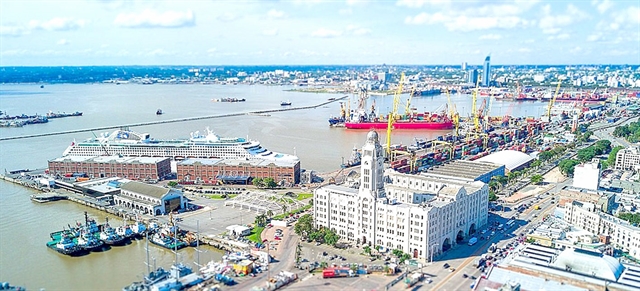
|
| Port of Montevideo, Uruguay. |
While Uruguay is well-known worldwide for its idyllic beaches, bucolic countryside, and of course, for soccer, it has a lot more to boast about.
With a strong economy, based on the export of agricultural goods, Uruguay is recognised as one of the best beef producers, ranking in 2019 as the eighth largest beef exporter in the world with a volume of 470,000 tonnes. Its efforts to improve quality levels have led to developing a traceability system that allows buyers, by reading a barcode or a QR code on the shelf of any supermarket in New York, Paris, Mexico, Tokyo or Tel-Aviv, to know which animal corresponds to the piece of meat, vacuum-packed and with the highest levels of quality, they are taking to their table.
Having the human being at the centre of its social policies, Uruguay has built up a strong and balanced society.
It stands out in Latin America for its high level of per capita income, low poverty – extreme poverty practically no longer exists – and its middle class is the largest in the region related to its population, reaching more than 60 per cent.
It is also among the best ranked in almost all global well-being indices, including the Human Development Index, where it ranks third in the region.
Since 2013, Uruguay has been a high-income country on the World Bank scale, with a per capita income of US$21,870, the result of an average economic growth of 4.1 per cent in the last eight years. Almost 90 per cent of the people over 65 are under Social Security coverage.
Integration into the world having set by the Government as a priority, led Uruguay to intensify extra-regional trade relations, opening up its economy and strongly reducing its dependence on the Brazilian and Argentine markets, traditionally two major trading partners.
As an important piece of this policy, since 1986, Uruguay started to lean deeply towards Southeast Asia, as a space to develop ties of friendship, co-operation and trade, which globalisation and technology started to favour.
As a key part of this process, Uruguay and Việt Nam established diplomatic relations almost 30 years ago. Since then, they have been working together, developing ties of friendship and enhancing their co-operation and trade.
Today, celebrating its National Day, Uruguay is pleased to count on Việt Nam as a reliable and forthright partner, to further continue to develop their links, for the mutual benefit of both peoples. — VNS

